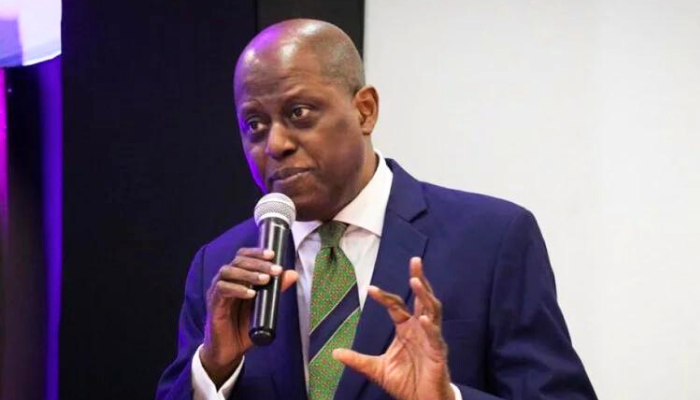The banking industry is faced with imminent shakeup as the Central Bank of Nigeria (CBN) introduces new recapitalization policy
David Oladimeji
Nigerian banking landscape is once again on the brink of a major shake-up. As the Central Bank of Nigeria (CBN) presses forward with its new recapitalisation directive, the air within the financial sector has grown tense, charged with whispers of impending mergers, strategic partnerships, and boardroom realignments.
What began as a policy announcement has quickly evolved into a defining moment for the country’s financial system. For some banks, the recapitalisation order represents an opportunity to expand and consolidate their dominance. For others, it may well determine survival.
The CBN’s new capital requirements, unveiled earlier this year, are designed to strengthen the sector and ensure banks are adequately equipped to finance large-scale economic growth. The apex bank’s logic is simple: a stronger capital base translates to stronger banks — and a more resilient economy.
However, the road to meeting these requirements is steep. Many smaller and mid-tier lenders are already calculating how to raise billions in new capital within a limited timeframe. For some, that means courting new investors. For others, it could mean merging with stronger partners.
Financial analysts say this phase mirrors the 2005 consolidation exercise, which reshaped Nigeria’s banking system under then-CBN Governor Charles Soludo. That historic reform reduced the number of banks from 89 to 25 and gave birth to today’s financial powerhouses like Access Bank, UBA, and Zenith Bank.
“This is another watershed moment,” said Dr. Tunde Adekoya, a Lagos-based economist. “The recapitalisation exercise is a test of agility, strategy, and confidence. It will separate serious institutions from struggling ones.”
Inside the gleaming boardrooms of Victoria Island and Marina, silent negotiations have begun. Bank executives, investment advisers, and regulators are already exploring possible synergies. The goal is simple — survival through strength.
While tier-one banks are largely unshaken, thanks to their massive shareholder funds and global networks, the mid-tier institutions are under pressure. Analysts believe many will seek alliances rather than risk extinction.
“The easiest and most practical way to meet these new thresholds is through mergers,” noted an investment banker familiar with ongoing discussions. “It’s cheaper, quicker, and more efficient than waiting for investors to inject capital in an economy already squeezed by inflation.”
Indeed, raising fresh capital from the market is proving difficult. With high interest rates, weak investor confidence, and tight liquidity in the capital market, potential investors are cautious. Many prefer short-term instruments over long-term equity commitments.
This leaves banks with two options — consolidation or creative recapitalisation. Some are already considering hybrid approaches: asset sales, debt-to-equity swaps, and joint ventures to boost capital ratios.
According to the CBN, the recapitalisation move is not punitive. Rather, it is a proactive step to strengthen the financial system in line with global standards. The apex bank believes that well-capitalised banks will be better positioned to fund infrastructure, manufacturing, and other growth-driving sectors.
But not everyone agrees with the timing. Critics argue that the policy could strain the sector at a time when the economy is still recovering from currency volatility, high inflation, and foreign exchange scarcity. “The idea is good,” said Mrs. Ebere Onwu, a financial consultant and former banker, “but implementation must be carefully managed so that we don’t destabilize the smaller players.”
She added that many regional banks serve local communities and small businesses, and a forced merger wave could disrupt access to credit for those who depend on them. “Financial inclusion must not become a casualty of reform,” she cautioned.
Beyond financial implications, there’s also a human angle to the recapitalisation debate. Past consolidation exercises were notorious for job losses, as merged entities cut costs and streamlined operations. Labour unions are already voicing concerns about the welfare of bank employees once the mergers begin.
Still, industry experts maintain that the benefits outweigh the risks. Stronger banks mean safer deposits, improved lending capacity, and greater confidence among foreign investors. “No country grows without a strong banking system,” said Adekoya. “If this exercise produces fewer but stronger banks, Nigeria wins.”
Meanwhile, the Securities and Exchange Commission (SEC) and the Nigerian Exchange Limited (NGX) are gearing up for what may become a busy season of corporate filings and capital-raising efforts. Officials are reviewing procedures to ensure faster approvals for rights issues and mergers.
On the streets, the average bank customer may not feel the tension yet. But behind the scenes, every chief executive is under pressure to prove readiness. Financial statements are being scrutinized. Capital adequacy ratios are being recalculated. And every board meeting now begins with one question: Are we ready?
For big lenders like Access, Zenith, UBA, and GTCO, the recapitalisation process may simply be a formality — a way to showcase financial dominance. But for smaller banks, the clock is ticking loudly. Many are quietly seeking strategic partners or international investors to avoid falling behind.
“The market will reward agility,” said an executive of a mid-tier bank who spoke on condition of anonymity. “Those who delay may find themselves left without a partner when the music stops.”
There are also opportunities for foreign investment. Several foreign institutional investors are reportedly exploring partnerships with local banks, viewing the recapitalisation as a chance to enter or expand in Africa’s largest economy.
Economists say this could be a silver lining. Fresh capital inflows could help stabilise the financial system, deepen liquidity, and create new avenues for credit expansion to the real sector.
Yet, the coming wave of mergers will not be without emotion. For employees and long-time customers, the disappearance of familiar bank names will evoke nostalgia — just as it did in 2005 when iconic brands faded into history.
Still, there’s optimism that the exercise will usher in a more efficient, technology-driven, and globally competitive banking industry. “It’s about future-proofing,” Onwu remarked. “The banks that emerge from this phase will be leaner, stronger, and more innovative.”
As the November 2025 compliance deadline inches closer, the financial sector is bracing for transformation. Mergers will be signed, deals sealed, and some brands may vanish. But in their place will rise a new generation of Nigerian banks — sturdier, better capitalised, and built for the challenges of tomorrow.




